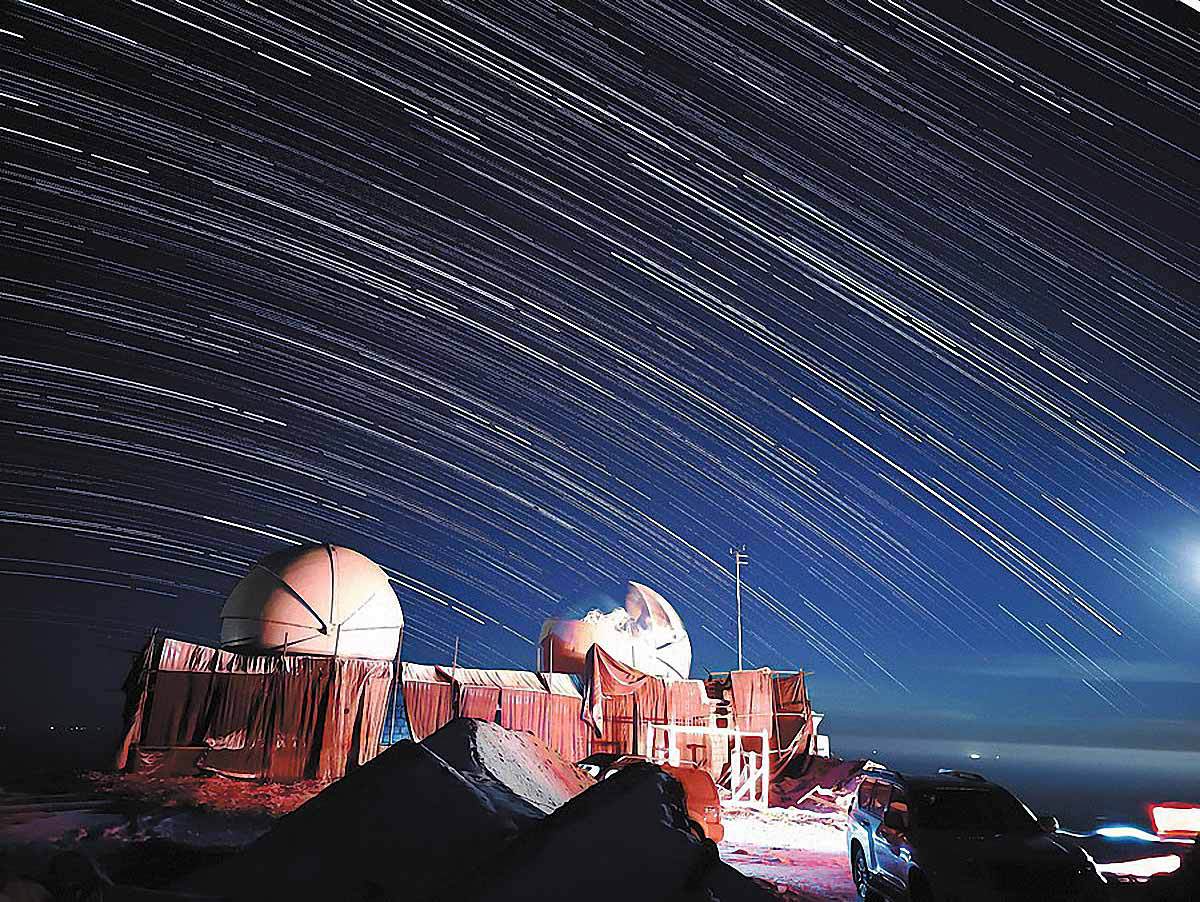
XINING — Qinghai province in Northwest China has approved the country's first regulation to protect the night sky, where China is building a world-class astronomy observation site.
The regulation, which takes effect from Jan 1, covers an observation site in the town of Lenghu on the north side of the Qinghai-Tibetan Plateau, and will have two designated "dark preservation areas", a "dark core zone" and a "buffer zone", to ensure its optical observation environment at night.
Within the 50-kilometer radius of the core area, the type and brightness of light resources will be under strict control. The illumination direction of all outdoor fixed lighting will have to be angled 30 degrees lower than the horizon. Building projects and activities that will affect astronomical observation will be prohibited in the core area.
In the buffer zone, the direction of all fixed outdoor lighting will have to be below the line of the horizon. The regulation also lays out restrictions on geological exploration, sightseeing and other activities in the area.
"The astronomical observation conditions in the important astronomical town need to be planned and protected from a legal perspective. I'm glad to see that Lenghu is making progress soundly," said Liu Boyang, an astrophysicist who has been to Lenghu several times.
As the highest plateau on Earth, the Qinghai-Tibetan Plateau provides outstanding opportunities for astronomy and particle astrophysics.
In 2021, Chinese astronomers reported in the journal Nature their three-year monitoring of a summit on Saishiteng Mountain in Lenghu. They said the area is an ideal location to build an astronomical observatory due to its clear night skies, stable atmospheric conditions and dry climate.
So far, nine optical astronomical telescope projects have been established in Lenghu, with an investment of nearly 2 billion yuan ($310 million).
The Large Sky Area Multi-Object Fiber Spectroscopic Telescope, a leading optical telescope project in China, will also move from the northern province of Hebei to Lenghu for better performance.
Xinhua
